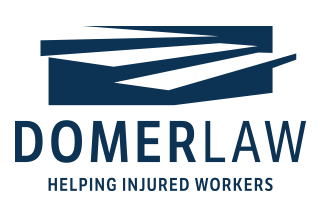Delivery drivers, both commercial and freight, subject themselves to serious injury on the roadway. Alongside you, drunk and distracted drivers infiltrate state highways and residential roads. Though you obey traffic laws, other drivers may hit you, injuring you while you’re on the job.
In Wisconsin, if another driver injures you while you perform your job duties, you may be eligible for workers’ compensation while you’re unable to work–including payment of lost time benefits and medical treatment expenses. Importantly, you can pursue a worker’s compensation at the same time as a personal injury action against the faulty driver.
Claiming your accident injury to the worker’s compensation court
Worker’s compensation–unlike personal injury–is a “no fault” system. You do not need to provide that someone else was negligent or responsible for your accident. To be eligible for worker’s compensation benefits, an injured worker simply must show the accident occurred during the course and scope of your employment. Driving a company vehicle to make deliveries, away from an office, still falls under your employment duties. Other work-related driving activities may include traveling employee duties, running an errand for your employer, or driving between client/customer appointments.
In some rare instances, you might not be eligible for worker’s compensation–for example, if you injured yourself intentionally, were engaged in horseplay, or were performing some off-duty activity.
Medical care
According to Wisconsin state law, an injured worker holds the right to reasonable medical care after an accident. In addition, you have the right to your first and second “choice” of doctors in Wisconsin.
“Choice” of medical care includes all doctors in the same referral chain. For example, a referral from a primary care physician to an orthopedic specialist to a pain management physician is all the same one choice under Wisconsin law.
Claiming and reporting
When bringing a workers’ compensation claim, you must follow specific steps to have a covered claim. These steps include:
- You should report the injury to your employer. Usually within 30 days, you must identify and claim that the accident occurred while performing the duties of your position.
- Your employer should report. Your company is supposed to give your accident injury documentation to its workers’ compensation insurance carrier within 7 days of your notice. The workers’ compensation carrier is the one to pay your claim. If the employer does not report the injury, bad faith penalties may apply.
- The insurance carrier should pay the claim. If you are eligible for workers’ compensation benefits, the following payments should be provided to you:
– Wage replacement benefits
– Medical treatment expenses
– Permanent disability benefits
– Vocational rehabilitation or loss of earning capacity benefits
[Note: Unlike personal injury, there are NO pain and suffering damages in workers’ compensation]
If you are injured in a car accident, the driver causing your injuries may be required to pay for your injuries, via a personal injury lawsuit. An injured worker should not forget that they can also pursue a workers’ compensation claim, entitling them to significant benefits.


